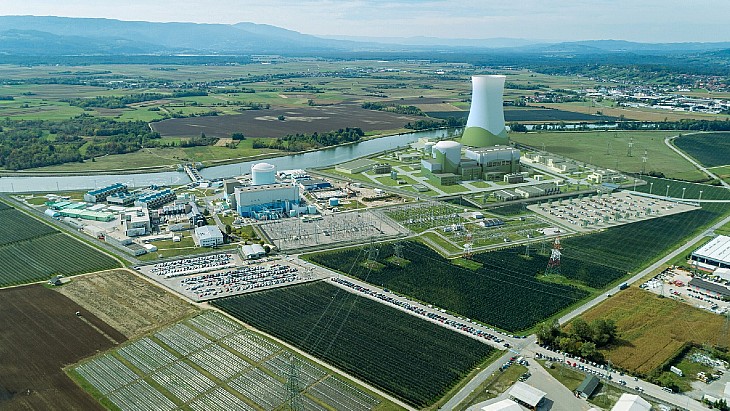Slovenia's JEK2 project is for a new one or two-unit nuclear power plant, with up to 2400 MW capacity, next to its existing nuclear power plant, Krško, a 696 MWe pressurised water reactor which generates about one-third of the country's electricity and which is co-owned by neighbouring Croatia.
Prime Minister Robert Golob has committed to holding a referendum on the project before it goes ahead, and has suggested the vote could be held later in 2024, with eight key studies and documents to be published beforehand to "enable citizens to make an informed decision". The current timetable for the project is for a final investment decision to be taken in 2028, with construction beginning in 2032.
A report published on Thursday on the JEK2 project website praises the potential of small modular reactors (SMRs) but estimates that "in order to compensate for the lack of economies of scale, SMR plants will need to fully exploit the potential benefits of series production in the future. We estimate the time needed to establish serial production and supply chains to be at least 20 years".
It adds: "The analysis of the comparison of the projected timeline of the JEK2 project with the projected development of SMR reactor technology showed that at the time of the expected signing of the contract with the supplier (2028), only three land-based SMR reactors will be in commercial operation, and an additional three will be under construction. All these reactors are FOAK (first of a kind) projects ... although the use of SMR technology for the JEK2 project is not suitable in the desired time frames, the GEN Group will continue to intensively monitor the development of SMR reactor technology."
In its latest broader update to reporters the company said the flood safety study showed that floods lower than the maximum possible level would not threaten the planned location of the JEK2 plant, but a further study taking into account a 10,000-year flood and the measures proposed to ensure flood safety of the heart of the site is being commissioned.
The report on the financial and safety aspects of the import of nuclear fuel concluded that "nuclear fuel represents a relatively small share of the cost price of electricity compared to power plants powered by liquid, gaseous or solid fossil fuels" and "Slovenia's reliable supply of nuclear fuel is ensured by its membership in the Euratom community. One of the fundamental objectives of the community is to ensure a regular and equal supply of nuclear fuel and other nuclear materials to all users in the EU, which also includes the control of the materials".
It adds that "Based on current annual uranium requirements, the identified resources are sufficient for more than 130 years. If all conventional and non-conventional resources were exploited, the time for which known reserves are sufficient would be extended to over 300 years."
The assessment on dealing with radioactive waste and used nuclear fuel notes that the country can build on its existing processes and adds that by the time the JEK2 project is completed, facilities for the disposal of such materials will already be built and established, "but their disposal capacities will have to be increased accordingly".
The company also covered the proposed cost of the project, noting that although Korea Hydro & Nuclear Power's 1000 MWe reactor in the Czech Republic had a projected cost of EUR7.9 billion (USD8.8 billion), the assessment in Slovenia was that the same sized reactor would cost about EUR9.3 billion. It added: "An international review is under way, which will check all calculations and used economic assumptions."
GEN energija is also conducting an information roadshow across the country to present information and answer questions about the proposed project. There is also a dedicated jek2.si website, where the various reports are published.







_15863.jpg)







